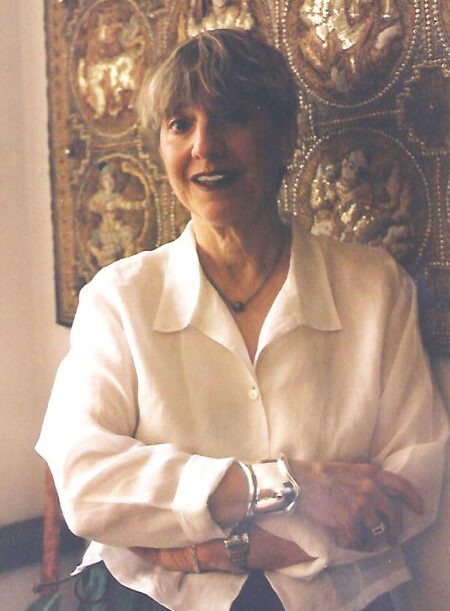ABOUT
Rosalind Palermo Stevenson is the author of four books of fiction and prose poetry and a filmmaker whose films are currently in the collection of the Anthology Film Archives in New York City. Her most recent book, Soul, Ghost, My Absolute, published by Rain Mountain Press in 2024, is a collection of eleven fictions written at the intersection of poetry and prose. Explorations of self and soul, stories of ghosts and sometimes ghost stories, dreams of darkness and light and the experience of life as dream, the writer Sofia Samatar has described it as “a ceaseless music that delights as it beckons us into mystery.” Rosalind’s formally innovative story “The Guest,” a rumination on the embrace of Mussolini by the Italian people, won the Italian American Writers Association fiction prize, was selected story of the year by the cultural journal Italian Americana, and was a Negative Capability annual fiction prize finalist. Her chapbook The Maria Axiom was an Anomalous Press chapbook competition finalist. She lives in New York City where she is at work on an extended prose poem sequence which continues her exploration of the fragmented and the episodic.
PUBLICATIONS

Rosalind Palermo Stevenson’s first book, the novella Insect Dreams, was called “a stunning story, half historical fiction, half fever dream,” by the writer Jeff Vandermeer in Locus Online. Inspired by the life and work of the seventeenth century naturalist and artist Maria Sibylla Merian and her two years spent in Surinam studying the insects there, Insect Dreams was initially published in the Small Beer Press anthology, Trampoline edited by Kelly Link. It was later selected by Peter Straub to be included in his anthology Poe’s Children and by Rain Mountain Press to be published as a stand-alone novella. The Absent, Rosalind’s 2016 novel, was described by the writer Mary Gordon as “an astonishing combination of dreaminess and precision.” Written against the backdrop of America’s 19th Century, The Absent is a poetic prose meditation on grief and loss, impermanence and what continues, and the weighing of the moments of a life against a lifetime. In her 2014 chapbook Kafka At Rudolf Steiner’s, she writes in the persona of Franz Kafka, combining the known and the unknown as she explores Kafka’s 1911 visit to the Rudolf Steiner and his highly idealized 1913 love affair during a stay at a sanatorium in Riva.
Rosalind’s short fiction and prose poems have been published in Conjunctions, First Intensity, LIT, Spinning Jenny, Washington Square, Drunken Boat, La Piccioletta Barca, Skidrow Penthouse, Negative Capability, Unlikely Stories Mark V, No Roses Review, Italian Americana Cultural and Historical Review, Quick Fiction, Literal Latte, Works (of fiction) In Progress, Reflections: Literary Journal of the United Nations Society of Writers, Phantasmagoria, eye-rhyme, and others. Her work has been anthologized in Poe’s Children, Trampoline, Wild Dreams: The Best of Italian Americana, and Rabbit Ears: TV Poems.
FILMS
Rosalind’s 16 mm, black and white films, made during her early years in New York City, were part of the independent, experimental, and avant-garde cinema generally known at the time as underground films. Her first film, a feature entitled Deux Voix, premiered at the iconic Film-Makers’ Cinematheque at the invitation of Jonas Mekas. Sunday Morning/The Velvet Underground, her short moving portrait of The Velvet Underground, has been used in many major films and television specials about Lou Reed and/or The Velvet Underground, most recently in Tod Haynes’ documentary The Velvet Underground. Her other films were shown in small venues or in private screenings in conjunction with other filmmakers of that time. Stevenson’s Koutoukas, her moving portrait of H.M. Koutoukas in rehearsal at The Theater for the New City in 1978, was screened in public and private venues in the late 1970s and early 1980s. Rosalind’s films were made under the name Rosalind Stevenson.